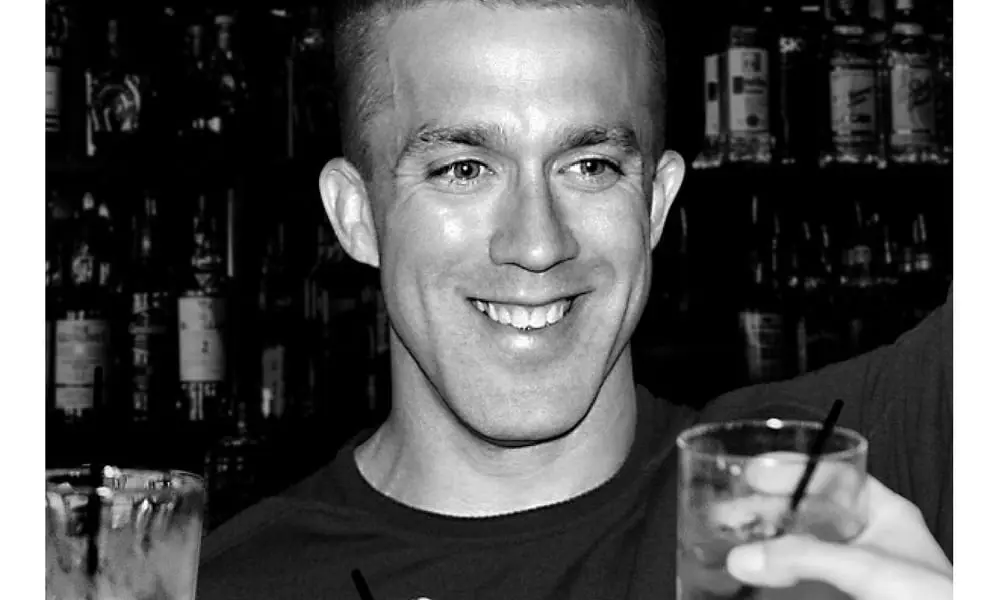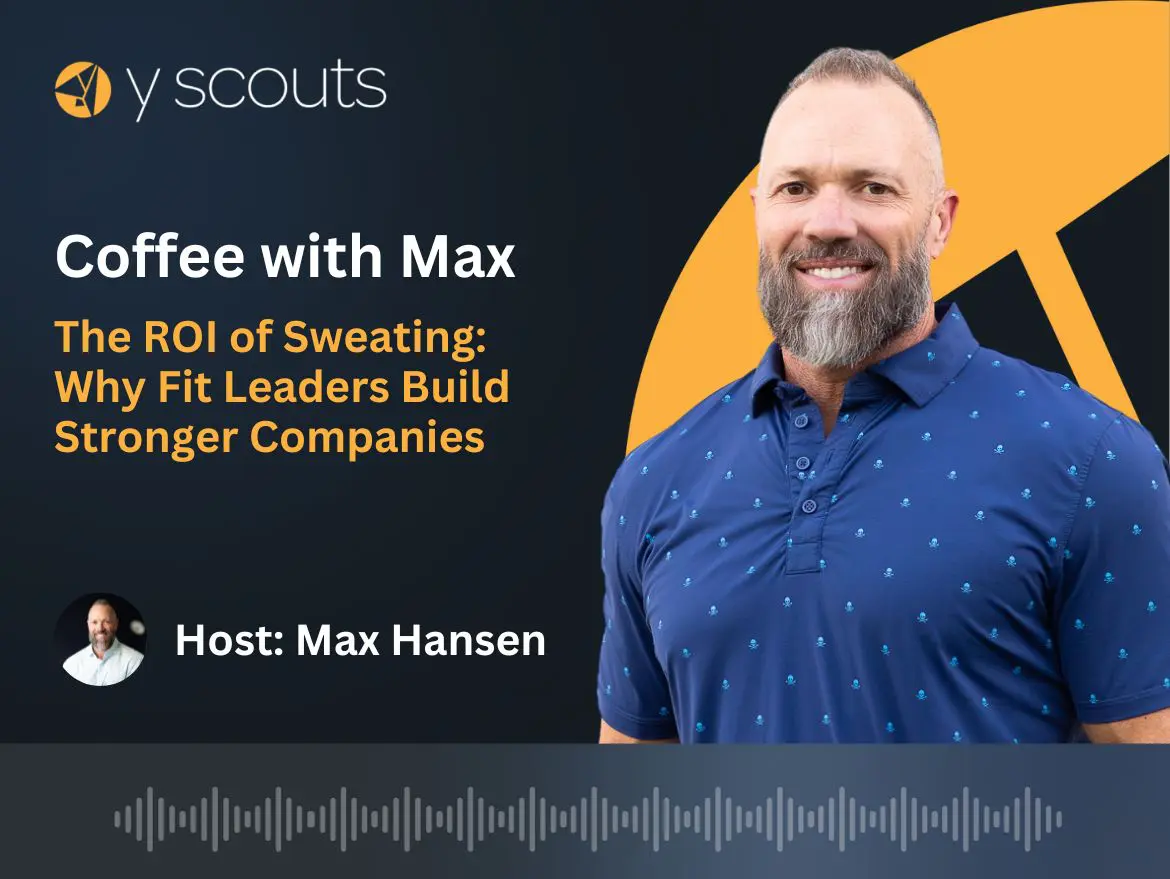
Today we’re interviewing Tucker Max, writer, entrepreneur, father, husband, and an ever-evolving human being. But even Tucker would be the first to say he doesn’t want to label himself; that’s one of the topics of conversation we get into. This is a guy who has written four books, and three of them have gone on to become New York Times bestsellers. He has also produced a movie, and has started five companies. He’s done a lot in a short period of time.
The other fascinating thing he’s done is essentially evolved who he is as a human being. He wrote a blog series that talks about how he went from—these are his words, not mine—”from an a**hole to the CEO.” (And now, how he has “fired himself” as the CEO.) We cover so many interesting topics in this conversation, from meditation to Buddhism to divorcing your ego from your business dealings, to what it’s like to start all these businesses. Hiring people, firing people, books he recommends, and much more. For those of you who know about Tucker Max or have read any of his books, I can assure you this episode is absolutely engaging from start to finish.
Table of Contents
ToggleShow Highlights
- 2:10 – The two “versions” of Tucker Max
- 6:18 – His “out in the open” way of living life
- 9:24 – Buddhism & Tucker’s mantra
- 14:02 – Failure & the path to success
- 15:40 – His journey with meditation
- 19:19 – Thoughts on being too hard on yourself & negative self-talk
- 23:51 – The proportionality between “great writer” & “great public speaker”
- 24:30 – Entrepreneurship: three tips
- 28:48 – Hiring the wrong people
- 30:54 – What company he’s working on now: Book In A Box
- 38:29 – Chasing profit & the value of time
- 47:46 – Book reviews
Show Links
- Book In A Box
- TuckerMax.com
- Tucker’s blog
Tucker Max Interview
It seems there are two sorts of Tucker Max; there’s a younger version and then there’s the “today” version—the evolving version of Tucker Max. Who is Tucker Max?
I get that question a lot, and I’m not really sure how to answer it. It’s funny—a lot of people give me credit for being good at personal branding. I actually feel like I’m bad at personal branding, because I get asked that question. If you’re asked that question, it means you are so many things that people have a hard time nailing you down. The general lesson of personal branding is, your brand should be immediately identifiable and memorable. And also transmittable—anyone should be able to talk about it. That’s the weird thing with me; I do so many things that it’s hard to get a handle.
If you read my early stuff, you’ll think, “Oh, he’s just a drunken, douchey frat boy.” Then, you read other stuff, and you think, “Hold on a minute—that’s not who he is at all, or at least not all he is.” Now I’ve got a family, a wife, a kid, a company. The way I see it is—and this will sound stupidly cliche—but I mean it: I don’t ever try to limit myself to “I’m X” or “I’m Y.” Because as soon as you say, “I’m X. I’m a writer, I’m an athlete, etc.” then you’ve automatically limited who you are and who you can become.
You start putting frameworks on how you see yourself, and that will always lead you in a bad direction. A great example: I never thought I was a writer, and I started by essentially writing emails to my friends. Because I never identified as a writer, then I never thought I needed to learn what the rules of writing are. All I cared about was writing funny emails that made my friends laugh.
As it turns out, because I didn’t follow any of the rules of writing, I ended up inadvertently inventing a new genre of literature, called fratire, and then selling three million copies of books and inspiring a new generation of writers because I never attached an identity to myself. I just worried about doing things that other people enjoy.
Talk about how you’re living such an “out in the open,” transparent life.
I feel like I haven’t put much at all out there. One of the reasons why I got famous is because I talked about the things everyone did but nobody talked about. All the dirty details of drinking, hooking up, just the party culture of your twenties—I just wrote it all down in a very honest, authentic and funny way. And it resonated with a lot of people. But if you read those books, you don’t actually know anything about me. You know stories, and you know how I feel about certain things, but the books aren’t about me as a person; they have to do with a set of experiences.
In my writing, I’m honest, vulnerable, authentic and raw, which is really crucial to connect with people, but I don’t make it about me. The reason it resonates with people is because I help them understand what they’re feeling and seeing in their own lives. I can’t tell you how many people have tried to imitate me. “Oh, Tucker Max wrote a story about throwing up on himself and getting drunk and falling down. I’m going to do the same thing!” And their story is just so deeply narcissistic and no one cares. All writing is about entertaining the reader or giving value to the reader. Everything is about the transaction of value.
Paul Graham, one of the founders of Y Combinator, has had a big impact on your line of thinking. He talks about what it takes to be a successful entrepreneur—essentially three things. (1) You must start with great people on your team. (2) You actually have to make something that the market you’re serving wants. (3) Tap into the maximum potential of your resourcefulness. Talk about resourcefulness and determination in hiring the right or wrong people.
Back to the story of me firing myself as CEO—my co-founder and I understood relatively early that we needed to bring in professional management. It took me awhile to understand that I actually had to replace myself as CEO. But we thought we could solve the professional management issue by just hiring good mid-level to higher-level executives. Around nine months ago, we went out looking for a senior project manager, or general manager type. So we ended up hiring a woman who had worked for two really big companies. She was a really great human being—smart and skilled at her jobs, obviously. But she just did not understand how to work in a startup. You can’t fake it in a startup, because your actions directly connect to consequences. What matters are results, not politics.
We thought we did a good job both emphasizing this to her and interviewing for it. Once she started at the company, we realized what a crucial, awful mistake we made. In her defense, she probably wasn’t trying to manipulate us. Ultimately it’s our mistake, not just because we decided to hire her, but why would we think a woman who’s worked for a 5,000-person company and a 10,000-person company would understand how to operate in a 10-person company? The best prediction of future behavior is of course past behavior. That’s the difference between playing professional basketball and professional cricket; they’re both pro sports, but they’re totally different. And you therefore need totally different types of people to play them.
Let’s jump into what you’re working on right now: the company Book in a Box. Share the story of Melissa Gonzales, and that pivotal dinner.
At an entrepreneur dinner, I sat next to this woman who’s a great entrepreneur and who built an amazing retail business. She told me people have been asking her for 10 years to write a book. She was like, “I just don’t have the time, I have a family, I have a company. Beyond that, I don’t like the writing process and the whole publishing business seems like total nonsense. But I need to do this book. How do I get my ideas into a book without going through this?” I looked at her and said, “Are you asking me how to write a book without writing a book?” Then, I went into the most elitist, snobby writer bullsh*t. I started talking about hard work, and how the process is part of the product, and blah blah blah.
She stops me and says, “Tucker—aren’t we at an entrepreneur dinner? Aren’t you an entrepreneur?” I said, “Yeah!” And she was like, “Are you sure? Because a real entrepreneur would help me think about how to do this. They wouldn’t lecture me about hard work.” She was totally right; entrepreneurs ultimately solve problems. It was such a gut punch.
So I became obsessed with this idea: How do I get the ideas out of her head without her having to touch a keyboard?
Half of the books considered the greatest books in Western history were not written down by the author. Socrates never wrote a word down, Plato didn’t, Jesus Christ never wrote a word down; his apostles did. Buddha never wrote a word down, Malcolm X didn’t, Marco Polo—we go down the list. All these great minds used scribes. If Jesus can do it, why can’t Melissa? So I got to a whiteboard, wrote down every single granular step that it takes to write a book, and lo and behold, only about 20% of it needed Melissa. It was the most important percent—the ideas. Every step that required Melissa, I got on the phone and interviewed her. There was a structured way to do it, and it ended up working really well. We got this amazing book out of her.
I felt shocked, too, because I didn’t have to learn anything about popup retail. All I had to do was structure these interviews. Two years in, and we’ve done 300 books as well as over 5 million sales. I didn’t realize I was sitting on top of a gold mine business; it took 10 or 20 more people coming to me who had heard about this and cutting me checks for me to realize this was maybe a really big deal.
Y Scouts, a leadership search firm, finds purpose-aligned and performance-proven leaders to help organizations achieve their missions faster. Ready to supercharge your leadership search and get the right person in your organization? Contact Y Scouts.






